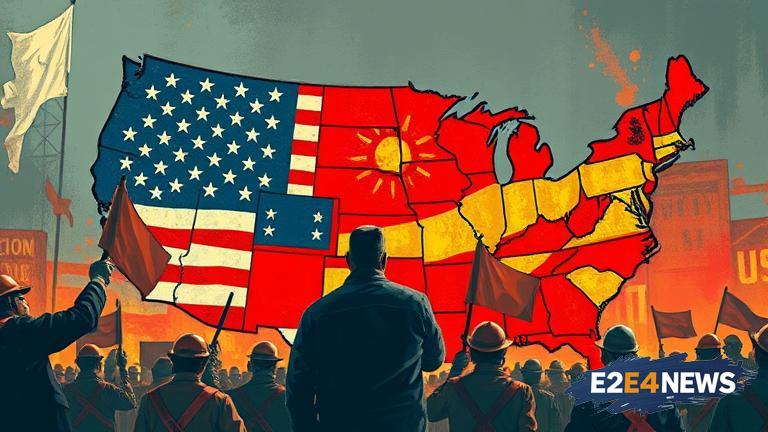In recent years, the United States has witnessed a surge in anti-union bills being introduced in various state legislatures. These bills aim to curb the power and influence of labor unions, which have been a cornerstone of American labor law for decades. The trend is alarming for union supporters, who argue that such legislation undermines workers’ rights and protections. On the other hand, proponents of the bills claim that they are necessary to promote economic growth and competitiveness. The issue has sparked intense debate and controversy, with many questioning the motivations behind these bills. The rise of anti-union bills can be attributed to the growing influence of conservative lawmakers and the decline of union membership in recent years. Many states, including Wisconsin, Ohio, and Indiana, have already passed or introduced legislation that restricts collective bargaining rights, imposes stricter regulations on union activities, and promotes right-to-work laws. These laws allow workers to opt out of paying union dues, even if they benefit from the union’s negotiations. The impact of these bills on workers and the economy is still unclear, but many experts warn that they could lead to a decline in wages, benefits, and working conditions. Labor unions have been at the forefront of the fight against these bills, organizing protests, rallies, and lobbying efforts to block their passage. The AFL-CIO, one of the largest labor federations in the US, has been vocal in its opposition to the bills, arguing that they are an attack on workers’ rights and freedoms. The controversy surrounding anti-union bills has also drawn attention to the role of money in politics, with many pointing out that corporate interests and wealthy donors are driving the push for these laws. The issue has also highlighted the deepening partisan divide in the US, with Democrats generally opposing the bills and Republicans supporting them. As the debate continues, it remains to be seen how the rise of anti-union bills will shape the future of labor law in the US. The outcome will have significant implications for workers, businesses, and the economy as a whole. In the meantime, labor unions and their supporters will continue to fight against these bills, arguing that they are essential to protecting workers’ rights and promoting economic fairness. The struggle between labor unions and anti-union lawmakers is likely to intensify in the coming months and years, with the outcome hanging in the balance. The US labor movement has a long and complex history, with labor unions playing a crucial role in shaping workers’ rights and protections. The current controversy surrounding anti-union bills is just the latest chapter in this ongoing struggle. As the US economy continues to evolve and change, the role of labor unions will remain a critical issue, with significant implications for workers, businesses, and the broader economy. The rise of anti-union bills is a symptom of a larger trend, one that reflects the declining influence of labor unions and the growing power of corporate interests. To understand the controversy surrounding anti-union bills, it is essential to examine the historical context of labor law in the US. The National Labor Relations Act of 1935 established the framework for modern labor law, recognizing the right of workers to form and join labor unions. Since then, labor unions have played a vital role in promoting workers’ rights and protections, from collective bargaining to workplace safety. However, in recent years, labor unions have faced significant challenges, including declining membership and increased competition from non-union employers. The rise of anti-union bills is a response to these challenges, with lawmakers seeking to restrict the power and influence of labor unions. The controversy surrounding anti-union bills has sparked a national debate about the role of labor unions in the US economy. While some argue that labor unions are essential to promoting workers’ rights and protections, others claim that they are outdated and unnecessary. The issue is complex and multifaceted, with different perspectives and opinions on the matter. As the debate continues, it is essential to consider the potential consequences of anti-union bills, including the impact on workers, businesses, and the economy as a whole. The rise of anti-union bills is a significant development in the history of labor law in the US, one that will have far-reaching implications for workers, businesses, and the broader economy. In conclusion, the controversy surrounding anti-union bills is a complex and multifaceted issue, one that reflects the ongoing struggle between labor unions and anti-union lawmakers. The outcome will have significant implications for workers, businesses, and the economy as a whole, and it remains to be seen how the rise of anti-union bills will shape the future of labor law in the US.
